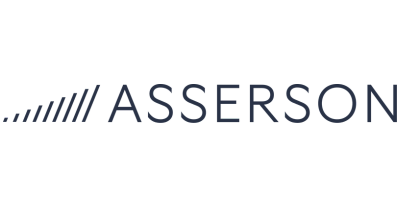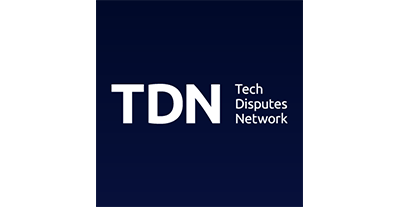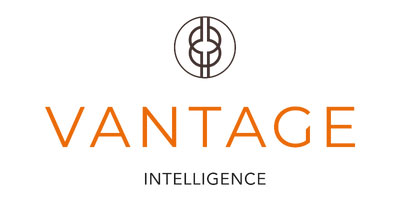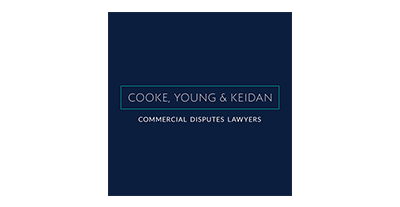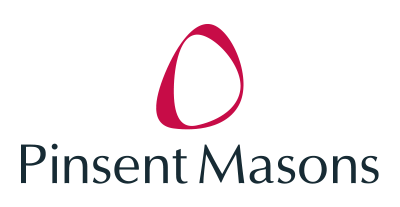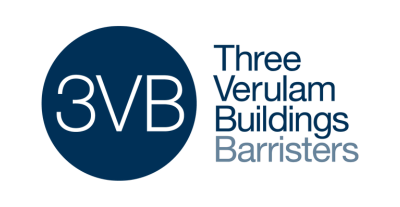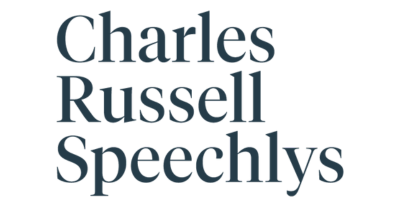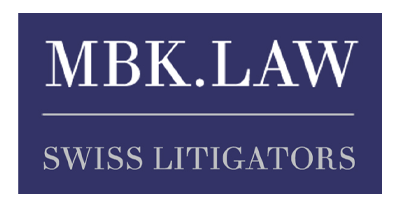Knowledge Hub
Join the Conversation!
Impartial and independent, ThoughtLeaders4 FIRE Knowledge Hub hosts cutting edge industry content and insight.
Email maddi@thoughtleaders4.com to submit content.
Third Party Financing and the Ability to Recover Fees from an Opposing Party
Date: 15/07/2020 Type: Articles Topic: FIRE | Insolvency | Civil Fraud | Enforcement |Introduction
Litigation can be expensive. Very expensive. And the only thing litigants dislike more than paying their own attorneys’ fees is also having to pay the legal fees of their adversaries when they lose a case. Unsurprisingly, losing parties assert creative arguments to avoid this outcome. One recent example arose in FastShip, LLC v. United States, a case involving a third-party litigation funder.[1] The losing defendant argued that, since the funder, not the plaintiff, paid the legal costs, the plaintiff lacked standing and its statutory right to recover attorneys’ fees was destroyed.
Sensibly, the court rejected this argument and found that the presence of funding does not affect standing. Along the way, the court noted the positive role that litigation funding can play in modern-day litigation. The ruling in FastShip is consistent with existing jurisprudence on this issue arising in other contexts where a plaintiff may not, for various reasons, pay its attorneys’ fees directly. Here, we consider this issue further.
FastShip, LLC v. United States
FastShip, LLC discovered apparent patent infringement of its patents for oceangoing vessels by the U.S. Navy, but it was insolvent and had no funds to pursue the case. A reputable contingency-fee law firm was willing to take the case “on risk”—that is, to defer its fees in exchange for a percentage of the litigation recoveries. However, the law firm was unwilling to commit to pay the considerable out-of-pocket costs necessary to retain and pay qualified experts. FastShip entered into a litigation funding agreement with a third party to enable the case to proceed.
After several years of litigation, FastShip prevailed on its infringement claims and was awarded substantial damages against the federal government. The judgment was affirmed on appeal and FastShip moved for an award of attorneys’ fees and related expenses.
The government opposed, arguing that since a third party helped the prevailing plaintiff pay for its legal fees, FastShip was not a real party in interest and therefore lacked standing to bring the claim for attorneys’ fees and costs. The U.S. Court of Federal Claims rejected this argument. The court concluded that preventing recovery based on the presence of a litigation funding agreement would be anathema to the underlying purpose of fee-shifting statutes.
In reaching its decision, the Court noted the important role fee-shifting statutes and litigation funders play in levelling the litigation playing field for small players. It observed that small entities suing the government face “an opponent with vast resources and a legion of highly skilled attorneys at its disposal,” and that given the imbalance in respective resources, “[l]itigation financing agreements [can] help bridge this divide.”[2]
The FastShip Ruling is Consistent with Those from Other Courts
The FastShip case is consistent with other recent cases that have addressed the question of whether the presence of litigation funding affects fee awards and answered that it does not.
In NorCal Tea Party Patriots v. Internal Revenue Service, a third-party funder assisted a group of conservative-leaning organizations in suing the IRS over alleged unfair treatment with respect to the organizations’ applications for tax-exempt status. The plaintiffs averred that they had been targeted for further scrutiny by the IRS due to inappropriate criteria for screening requests for 501(c) status. The criteria included flagging applications that used words such as “Patriots” or “Tea Party” in the organization’s name. The parties ultimately settled the dispute and the plaintiffs and class counsel sought “an award of reasonable attorneys’ fees, costs and expenses to reimburse a portion of the fees and expenses incurred by the third party funder.”[3] In granting plaintiffs’ motion, the court noted, “there is an important societal interest in rewarding attorneys and third-party funders who engage in public interest litigation.”[4] The court reasoned that “[b]y authorizing reimbursement for a portion of the fees and expenses,” it would “facilitate the ability of litigants to pursue public interest litigation that otherwise would not be feasible.”[5]
Another example is WAG Acquisition, LLC v. Multi Media LLC, a patent enforcement case, in which the New Jersey Federal District Court rejected the proposition that using third-party funding impacted plaintiff’s standing to enforce his contractual rights.[6] In WAG Acquisition, the defendants argued that by entering into a series of litigation funding agreements with a third-party funder, the plaintiff had surrendered “substantial rights in the patents-in-suit to [the third party funder]” such that the plaintiff now “lacks constitutional and prudential standing to enforce those patents.”[7] The court rejected these arguments, noting defendants’ failure to “cite any authority for their position that a party’s ability or inability to fund its suit has any bearing on the standing analysis” and stating that the third-party funder’s “limited role in settlement decision-making is insufficient to deprive [p]laintiff of standing.”[8]
Whether a Party Pays Its Own Fees Does Not Impact the Recovery Analysis
The above cases are consistent with the numerous situations outside of the litigation funding context where parties to litigation do not pay their counsel directly and still retain their ability to get their fees and costs paid:
- Class Actions: Class actions are a form of representative litigation where some parties are absent from court, as the “named” plaintiff or defendant is present in the court and litigates the case on their own behalf—and on behalf of the absent class members. Plaintiffs’ class action counsel can act on an hourly or contingent fee basis and Rule 23(h) of the Federal Rules of Civil Procedure permits a court to “award reasonable attorney’s fees and non-taxable costs that are authorized by law or by the parties’ agreement.”[9]
- Fee-Shifting Provisions: When an action arises under a statute containing fee-shifting provisions, a prevailing plaintiff recovers attorneys’ fees directly from the defendant. And the mere fact that the prevailing party does not pay its lawyers’ legal fees directly does not preclude the recovery of those fees from the losing party.
- Insurance Cases: In such matters, losing party may seek to avoid paying an award of attorneys’ fees to the prevailing party on the basis that the latter did not incur any legal expenses. The argument is usually that since the prevailing party’s insurer either represented it in the case or paid the legal expenses on its behalf, it would be inequitable to require the losing party to reimburse attorneys’ fees to the prevailing party. Several state courts, including in North Carolina, Florida, Colorado, and Nevada have considered this issue and held that such payments do not preclude an award of attorneys’ fees and costs.[10]
- Shareholder Derivative Suits: Here, corporate shareholders serve as the plaintiffs, bringing the claim on behalf of the corporation against a third party who is alleged to have harmed the corporation. The defendants in shareholder derivative actions are frequently the officers or directors of the corporation who allegedly engaged in various forms of wrongdoing against the corporation, including breach of fiduciary duty, self-dealing, or fraud. Although the corporation is the ultimate beneficiary of the suit, courts have held that the shareholders who bring the derivative action are entitled to a recovery of attorneys’ fees.[11] For example, in Mills v. Electric Auto-Lite Company, involving the dissemination of misleading proxy statements to investors, the U.S. Supreme Court found that “the expenses of petitioners’ lawsuit have been incurred for the benefit of the corporation and the other shareholders.”[12] Accordingly, the Supreme Court granted attorneys’ fees and expenses.
Conclusion
These cases, while arising in different contexts, illustrate a very simple premise: plaintiffs rely on a variety of sources to finance high-stakes litigation and courts will not penalize them for such reliance by denying them reimbursement of attorneys’ fees by opposing parties. As evidenced above, standing should not be affected by the manner of financing, especially when a third party does not control the outcome of the litigation—as is the case with litigation funders. Third-party litigation funding has proven instrumental to increasing access to justice for both public interest cases as well as for critical business disputes where one party lacks the resources to pursue meritorious claims against a larger corporation or the federal government, for example. This trend will undoubtedly continue as more courts recognize the positive role that third-party funding can play and reject scurrilous arguments that a plaintiff’s impecuniosity should have any bearing on standing and the reimbursement of attorneys’ fees.
[1] No. 12-484C, 2019 WL 2702073 (Fed. Cl. June 27, 2019); see also NorCal Tea Party Patriots v. Internal Revenue Serv., No. 1:13CV341, 2018 WL 3957364 (S.D. Ohio Aug. 17, 2018).
[2] FastShip, LLC, 2019 WL 2702073, at *9.
[3] NorCal Tea Party Patriots, 2018 WL 3957364, at *1.
[4] Id. at *2.
[5] Id.
[6] WAG Acquisition, LLC v. Multi Media, LLC, No. CV142340ESMAH, 2019 WL 3804135, at *2 (D.N.J. Aug. 13, 2019).
[7] Id.
[8] Id.
[9] Fed. R. Civ. P. 23(h).
[10] See Copper Sands Homeowners Ass’n, Inc. v. Copper Sands Realty, LLC, No. 210CV00510GMNNJK, 2016 WL 10719389, at *2 (D. Nev. July 18, 2016), report and recommendation adopted, No. 210CV00510GMNNJK, 2016 WL 10719386 (D. Nev. Sept. 27, 2016) (rejecting argument that no attorney fees should be due because the insurance company was the real party in interest); Hoffman v. Oakley, 184 N.C. App. 677, 686, 647 S.E.2d 117, 124 (2007) (upholding grant of attorney fees and costs to the defendants who had prevailed in a personal injury lawsuit); Hough v. Huffman, 555 So. 2d 942, 944 (Fla. Dist. Ct. App. 1990) (upholding award of attorney fees notwithstanding the fact that the “[defendant’s] liability insurance company paid the costs in accordance with its insurance contract…”); see also Aspen v. Bayless, 564 So.2d 1081, 1082-83 (Fla. 1990) (approving Hough); Mullins v. Kessler, 83 P.3d 1203, 1204 (Colo. App. 2003); City of Wheat Ridge v. Cerveny, 913 P.2d 1110, 1117 (Colo.1996) (“The court of appeals correctly determined that ‘a party need not be obligated to pay attorney fees to be entitled to such an award authorized by a statute.’”) (citation omitted).
[11] See, e.g., Chan v. Diamond, No. 03 CIV.8494(WHP), 2005 WL 941477, at *3 (S.D.N.Y. Apr. 25, 2005) (“Delaware [law] permits courts to order the payment of counsel fees and related expenses to a plaintiff whose efforts result in . . . the conferring of a corporate benefit.”) (citations and quotation marks omitted).
[12] 396 U.S. 375, 392 (1970) (citation and quotation marks omitted).
Author
Ken Epstein and Nilufar Hossain – Omni Bridgeway
Our FIRE Corporate Partners










